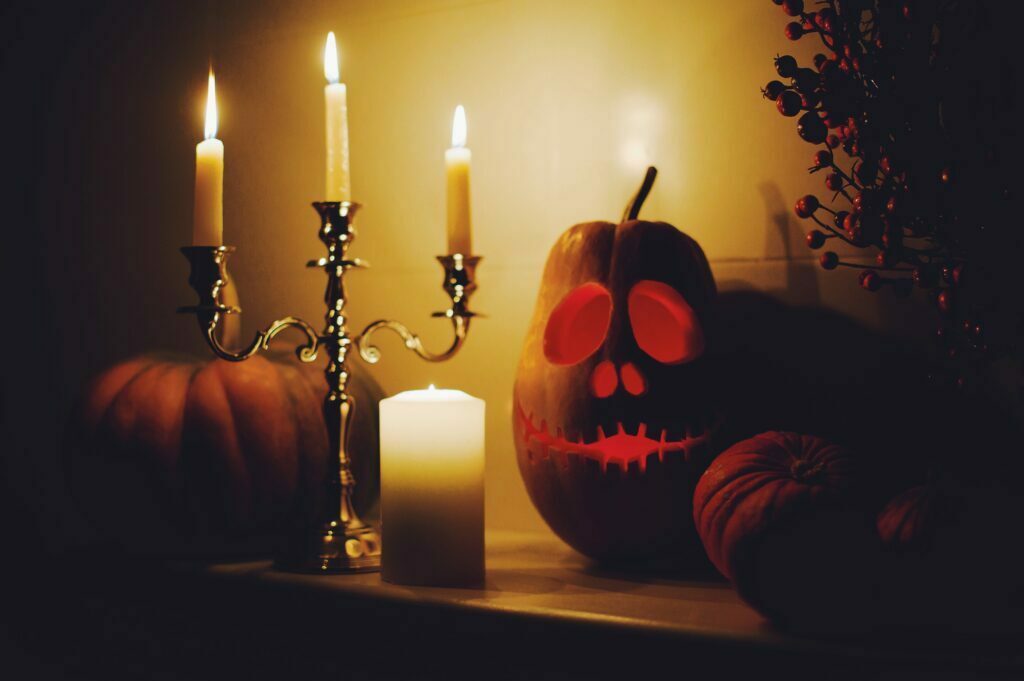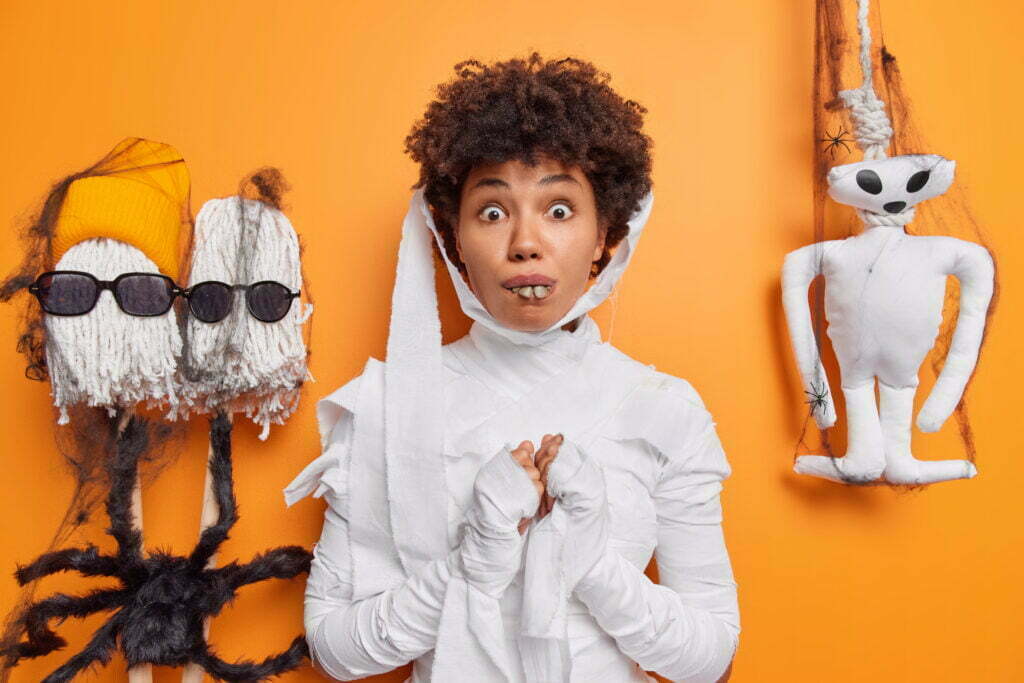So, you’ve probably been wondering whether it’s okay to jump on the Halloween bandwagon even if you’re not religious. Well, let’s face it – Halloween has become a cultural phenomenon that seems to grow bigger and more widespread every year. But is it really acceptable to partake in the festivities if you don’t subscribe to the religious origins of the holiday? In this article, we’ll explore the various perspectives surrounding this controversial topic and help you decide whether or not to don that costume and join in on the spooky fun.
Understanding Halloween
Halloween, also known as All Hallows’ Eve, is a holiday that has been celebrated for centuries. It originated from ancient Celtic festivals and has evolved over time to become a culturally significant event in many countries around the world. This article aims to provide a comprehensive understanding of Halloween, including its origins, traditions, religious significance, and alternative ways of celebrating for those without religious affiliation.
Origins and Traditions of Halloween
Halloween can be traced back to the ancient Celtic festival of Samhain, celebrated by the Celts over 2,000 years ago in what is now Ireland, the United Kingdom, and northern France. Samhain marked the end of the harvest season and the beginning of winter, a time when the boundary between the living and the dead is believed to be blurred.
During Samhain, people would light bonfires and dress in costumes to ward off roaming spirits. These traditions eventually merged with Christian practices when Pope Gregory III designated November 1st as All Saints’ Day, a day to honor saints and martyrs. The evening before, October 31st, became known as All Hallows’ Eve, later abbreviated to Halloween.
Religious Significance of Halloween
For many religious individuals, Halloween holds religious significance. It is seen as a time to remember and honor loved ones who have passed away and to reflect on the concept of mortality. Some Christian denominations view Halloween as an opportunity to pray for the souls of the deceased and to contemplate the relationship between life and death.
Celebrating Halloween without Religious Affiliation
Halloween as a Cultural Celebration
While Halloween has religious roots, it has transformed into a cultural celebration that many people, regardless of religious beliefs, partake in. It serves as a time for communities to come together, engage in festivities, and embrace the spooky spirit of the season. By focusing on the cultural elements of Halloween, such as dressing up, decorating, and participating in activities like trick-or-treating, individuals can enjoy the holiday without a religious connection.
Inclusivity and Diversity
Another aspect of celebrating Halloween without religious association is the embracement of inclusivity and diversity. Halloween provides an opportunity for people from various backgrounds to come together and appreciate different cultures. People can explore costumes and traditions from around the world, fostering a sense of unity and understanding among diverse communities.
Personal Choice and Preferences
Ultimately, whether or not to celebrate Halloween without religious affiliation is a personal choice. Some individuals may choose to participate in the festivities, finding joy and entertainment in the holiday’s traditions, while others may opt to abstain due to their religious beliefs or personal preferences. It is essential to respect and understand each individual’s choice and allow for open dialogue and acceptance.
Exploring Different Perspectives
Religious Views on Halloween
Religious perspectives on Halloween vary among different faiths and denominations. Some Christians embrace Halloween, interpreting it as an opportunity to engage with their communities and share messages of love, compassion, and faith. Others, however, view Halloween as a holiday with pagan or demonic origins and choose to abstain from celebrating it.
In some other religious traditions, such as Islam and Judaism, Halloween may not hold any significant religious value. Individuals belonging to these faiths may choose not to celebrate Halloween due to its historical and cultural associations rather than religious reasons.
Non-religious Perspectives on Halloween
For those without religious beliefs, Halloween can be seen as a time for fun, creativity, and self-expression. It provides an opportunity to embrace the imaginative aspects of dressing up and engaging in themed activities. Non-religious individuals may appreciate the holiday’s ability to evoke excitement and joy, seeing it as a chance to celebrate life and enjoy the festivities present in their communities.
Controversies Surrounding Halloween
Cultural Appropriation
One of the controversies surrounding Halloween is the issue of cultural appropriation. This occurs when individuals from one culture adopt symbols, clothing, or practices from another culture without fully understanding or respecting their historical or cultural significance. It is important to approach Halloween costumes and decorations with sensitivity and avoid perpetuating stereotypes or cultural insensitivity.
Commercialization of Halloween
As with many holidays, Halloween has become increasingly commercialized, with extensive marketing and consumerism. The emphasis on buying costumes, decorations, and candy can overshadow the original meaning and traditions of the holiday. It is crucial to be mindful of the commercial aspects and strive to maintain the authentic spirit of Halloween, focusing on its cultural and community-oriented aspects.
Controversial Halloween Costumes
Another aspect of Halloween that sparks controversy is the issue of inappropriate or offensive costumes. Dressing up in costumes that perpetuate stereotypes, mock cultures, or trivialize sensitive subjects can be hurtful and disrespectful. It is important to exercise sensitivity and awareness when selecting or creating Halloween costumes, promoting inclusivity and understanding.
Benefits of Celebrating Halloween regardless of Religious Beliefs
Fostering Community and Social Connections
Halloween provides an opportunity to foster a sense of community and strengthen social connections. Participating in neighborhood events, attending Halloween parties, or interacting with trick-or-treaters can bring people together, promoting a sense of belonging and togetherness.
Promoting Creativity and Self-Expression
Engaging in Halloween festivities can unleash creativity and encourage self-expression. Whether it is through designing costumes, carving pumpkins, or decorating homes, Halloween offers a chance to explore one’s imagination and showcase individuality. This creative outlet can be enjoyed by people of all ages, adding an element of playfulness and excitement to the holiday.
Enjoyment and Celebration of Festivities
Regardless of religious beliefs, Halloween offers the opportunity to enjoy and celebrate the festivities associated with the holiday. From the thrill of haunted houses to the joy of receiving and giving candy, Halloween brings a unique sense of excitement and entertainment. By participating in the cultural aspects of the holiday, individuals can cultivate a spirit of celebration and make lasting memories.
Alternatives to Celebrating Halloween
Non-Halloween Fall Festivals
For individuals who prefer not to celebrate Halloween, non-Halloween fall festivals provide an alternative. These festivals often focus on seasonal themes and activities, including hayrides, pumpkin patches, apple picking, and harvest celebrations. They offer an opportunity to enjoy the beauty of autumn and engage in family-friendly activities without the specific ties to Halloween.
Other Seasonal Celebrations
In addition to fall festivals, there are other seasonal celebrations that individuals may opt for instead of Halloween. For example, the Day of the Dead, celebrated primarily in Mexico, is a holiday that honors and remembers deceased loved ones. This celebration centers around cultural traditions and rituals, creating a meaningful and reflective atmosphere.
Personal Reflection and Self-Care
Some individuals may choose to spend Halloween in personal reflection and self-care. This could involve engaging in activities that promote relaxation and well-being, such as practicing mindfulness, taking a spa day, or simply enjoying a quiet night at home. Taking time for oneself and prioritizing self-care is a valid alternative to participating in public festivities.
Considerations for Parents and Families
Parental Values and Beliefs
Parents play a crucial role in deciding how to approach Halloween with their children, considering their own values and beliefs. It is essential for parents to have open conversations about their religious or non-religious perspectives and make informed decisions based on what aligns with their family’s values.
Educating Children about Halloween
Regardless of whether parents choose to celebrate Halloween or not, educating children about the holiday and its various meanings can be valuable. This can involve discussions about the historical, cultural, and religious aspects of Halloween, helping children develop an understanding and appreciation for different perspectives.
Parental Involvement and Supervision
Parents should also consider their level of involvement and supervision during Halloween activities. This may include accompanying children while trick-or-treating, ensuring costumes are appropriate, and verifying the safety of treats. Being actively involved allows parents to ensure that Halloween festivities align with their family’s values and create a positive and safe experience for their children.
Creating a Welcoming Environment
Respecting Individual Choices
In the spirit of inclusivity and understanding, it is important to respect individual choices regarding Halloween participation. People may have various reasons for celebrating or not celebrating the holiday, and it is crucial to honor and acknowledge these differences without judgment or exclusion.
Addressing Religious and Non-religious Sensibilities
Creating a welcoming environment entails acknowledging and addressing the sensibilities of both religious and non-religious individuals. This can be accomplished by fostering open dialogue, promoting understanding, and being mindful of potential sensitivities surrounding religious or cultural symbols associated with Halloween.
Promoting Inclusivity and Tolerance
Halloween serves as an opportunity to promote inclusivity and tolerance within communities. Embracing diversity, encouraging cultural exchange, and practicing empathy can contribute to a more accepting and harmonious environment. By celebrating Halloween with respect and sensitivity, individuals can create a space where everyone feels comfortable and welcome.
Conclusion
In conclusion, Halloween is a holiday with multiple layers of origins, traditions, and controversies. While its religious significance holds importance for some, it has also evolved into a cultural celebration enjoyed by people of various backgrounds and beliefs. Understanding and respecting different perspectives on Halloween is essential for fostering inclusivity, tolerance, and a sense of community. Whether one chooses to celebrate Halloween, explore alternative festivities, or prioritize personal reflection, the key lies in creating an environment that welcomes and respects individual choices.



